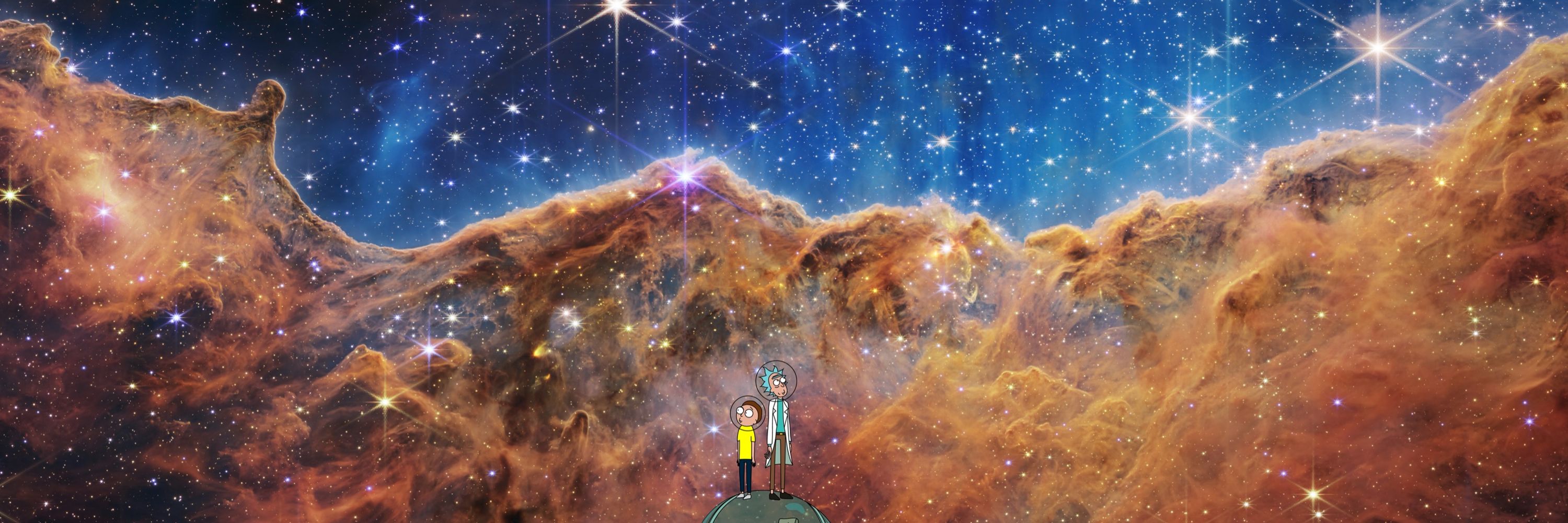
Edgar Dubourg
@edgardubourg.bsky.social
PhD student in cognitive science (ENS, Paris) studying the evolutionary origin, psychological foundations and cultural evolution of fictions. www.edgardubourg.fr
Our research contributes to this hypothesis that curiosity is shaped by current ecological conditions, increasing when life feels safe and contracting in harsher contexts. Here are both the article and the original study.
November 5, 2025 at 8:20 AM
Our research contributes to this hypothesis that curiosity is shaped by current ecological conditions, increasing when life feels safe and contracting in harsher contexts. Here are both the article and the original study.
Read it here: www.psychologicalscience.org/publications...
(Dubourg, Dheilly, Mercier & Morin, 2025, Psychological Science)
(Dubourg, Dheilly, Mercier & Morin, 2025, Psychological Science)
October 31, 2025 at 11:27 AM
Read it here: www.psychologicalscience.org/publications...
(Dubourg, Dheilly, Mercier & Morin, 2025, Psychological Science)
(Dubourg, Dheilly, Mercier & Morin, 2025, Psychological Science)
The feature also discusses new work on how children learn to avoid inconvenient information and how humans and AI differ in generalization.
October 31, 2025 at 11:27 AM
The feature also discusses new work on how children learn to avoid inconvenient information and how humans and AI differ in generalization.
People rely on an intuitive sense of how rare information is, and of the fact that human knowledge is nested.
October 31, 2025 at 11:27 AM
People rely on an intuitive sense of how rare information is, and of the fact that human knowledge is nested.
Awesome!! Congrats!
September 4, 2025 at 3:04 PM
Awesome!! Congrats!
By combining cultural history, large-scale datasets, and LLM-based annotation, we can move long-standing debates on the evolution of fiction from speculation to data – and begin to explain why our stories have drifted so far from reality.
August 12, 2025 at 10:26 AM
By combining cultural history, large-scale datasets, and LLM-based annotation, we can move long-standing debates on the evolution of fiction from speculation to data – and begin to explain why our stories have drifted so far from reality.
The likely drivers are changes in audience psychology: increased trust, reduced puritanism, and greater openness to novelty, all linked to more secure and affluent environments.
August 12, 2025 at 10:26 AM
The likely drivers are changes in audience psychology: increased trust, reduced puritanism, and greater openness to novelty, all linked to more secure and affluent environments.
Over the long term, we also see gradual increases, with peaks in prosperous periods like the Roman Empire, Tang Dynasty, and Renaissance. Even in antiquity there were highly fictive works, but they were much less common than today.
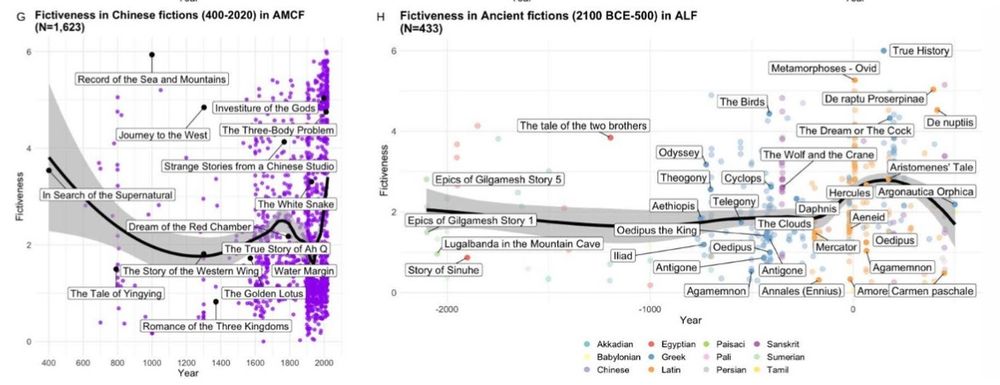
August 12, 2025 at 10:26 AM
Over the long term, we also see gradual increases, with peaks in prosperous periods like the Roman Empire, Tang Dynasty, and Renaissance. Even in antiquity there were highly fictive works, but they were much less common than today.
Across the 20th and 21st centuries, fictiveness rises steadily in novels, films, and Chinese fiction, regardless of genre or language. Box office data show that high-fictiveness films have become increasingly successful over time.
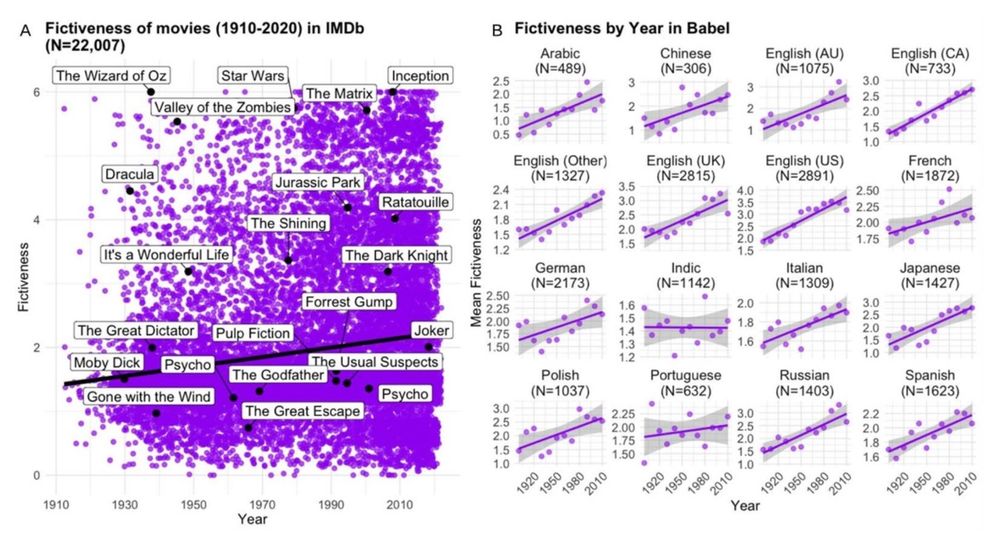
August 12, 2025 at 10:26 AM
Across the 20th and 21st centuries, fictiveness rises steadily in novels, films, and Chinese fiction, regardless of genre or language. Box office data show that high-fictiveness films have become increasingly successful over time.
The approach scales to all periods: The Imitation Game (real people and events) has low fictiveness; The Lord of the Rings (invented everything) has very high fictiveness; One Piece (manga) also scores high for fantastical settings, events and characters.

August 12, 2025 at 10:26 AM
The approach scales to all periods: The Imitation Game (real people and events) has low fictiveness; The Lord of the Rings (invented everything) has very high fictiveness; One Piece (manga) also scores high for fantastical settings, events and characters.
One example: Jurassic Park (1993) scores low for characters (ordinary humans), high for events (reviving dinosaurs through fictional science), and moderate for settings (a realistic island but with invented facilities). The overall fictiveness is thus intermediate.
August 12, 2025 at 10:26 AM
One example: Jurassic Park (1993) scores low for characters (ordinary humans), high for events (reviving dinosaurs through fictional science), and moderate for settings (a realistic island but with invented facilities). The overall fictiveness is thus intermediate.
We checked validity by reviewing random samples and comparing to known genre patterns. As expected, fantasy and science fiction scored highest, biographies and historical dramas lowest. LLM annotations also converged with a second model and with manual checks.
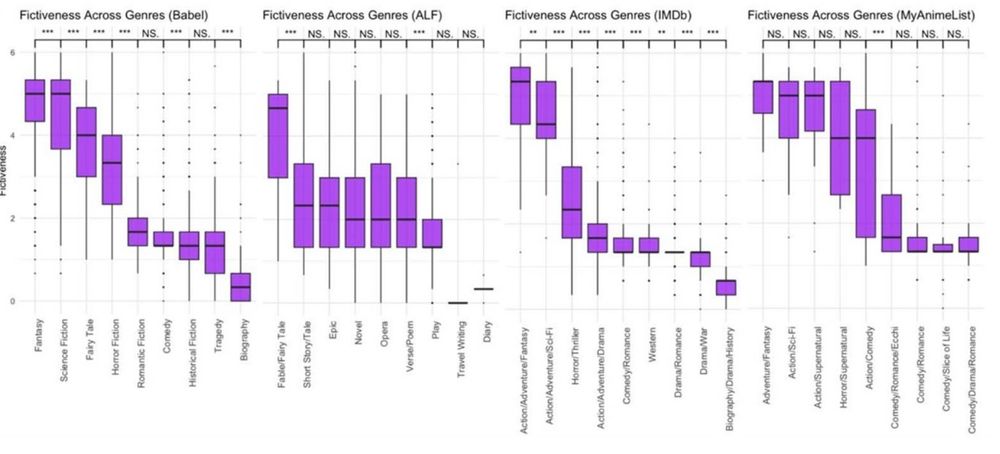
August 12, 2025 at 10:26 AM
We checked validity by reviewing random samples and comparing to known genre patterns. As expected, fantasy and science fiction scored highest, biographies and historical dramas lowest. LLM annotations also converged with a second model and with manual checks.
Each work was annotated three times – once for protagonists, once for events, once for settings – yielding more than 195,000 separate evaluations. The model produced a score and a brief justification, and returned “NA” for unfamiliar works.
August 12, 2025 at 10:26 AM
Each work was annotated three times – once for protagonists, once for events, once for settings – yielding more than 195,000 separate evaluations. The model produced a score and a brief justification, and returned “NA” for unfamiliar works.
Manual scoring at this scale would be impossible. Instead, we used large language models (LLMs) to annotate each work. For every title, the model received minimal metadata (title, author, date) and a detailed prompt defining the scale and historical context.
August 12, 2025 at 10:26 AM
Manual scoring at this scale would be impossible. Instead, we used large language models (LLMs) to annotate each work. For every title, the model received minimal metadata (title, author, date) and a detailed prompt defining the scale and historical context.
We then assembled more than 65,000 works from over 30 countries and 4,000 years – from The Epic of Gilgamesh and The Odyssey to modern cinema and video games – and scored them on a 0–6 scale for each narrative dimension.
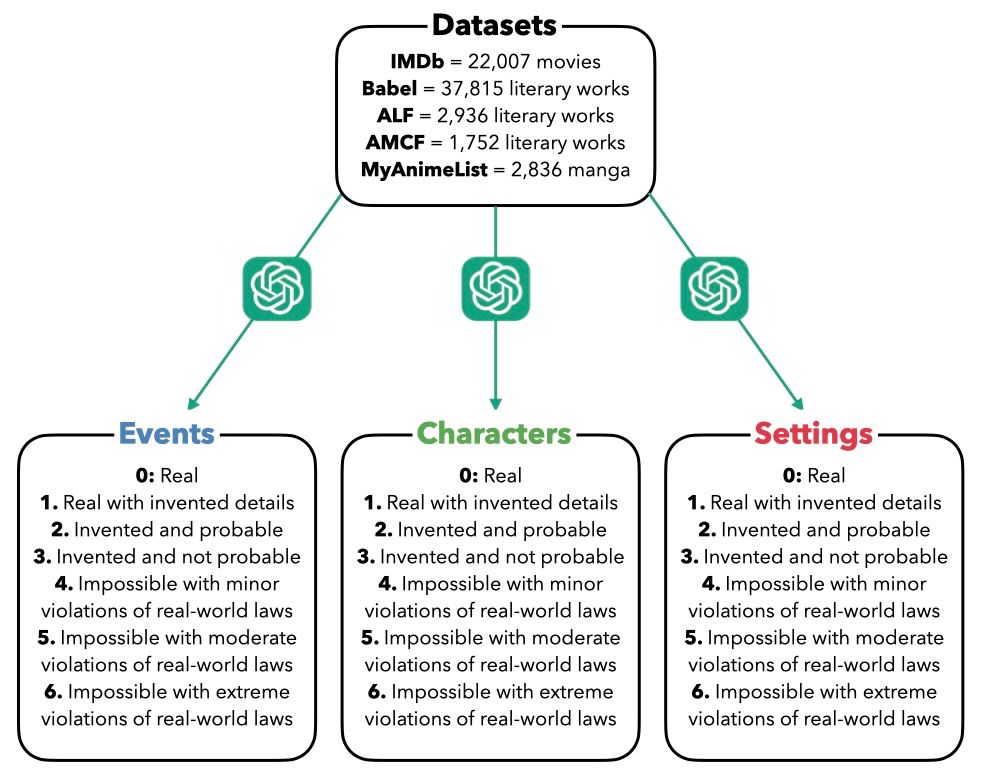
August 12, 2025 at 10:26 AM
We then assembled more than 65,000 works from over 30 countries and 4,000 years – from The Epic of Gilgamesh and The Odyssey to modern cinema and video games – and scored them on a 0–6 scale for each narrative dimension.
We tackled this problem by defining “fictiveness”: the degree to which a story’s protagonists, events, and settings are invented or impossible, assessed according to the worldview of the time and place where the story is set.
August 12, 2025 at 10:26 AM
We tackled this problem by defining “fictiveness”: the degree to which a story’s protagonists, events, and settings are invented or impossible, assessed according to the worldview of the time and place where the story is set.
Historians of culture and literary theorists have long debated whether fiction has grown more imaginative over time. These debates have remained mostly qualitative, because “distance from reality” is hard to measure across centuries and cultures.
August 12, 2025 at 10:26 AM
Historians of culture and literary theorists have long debated whether fiction has grown more imaginative over time. These debates have remained mostly qualitative, because “distance from reality” is hard to measure across centuries and cultures.


